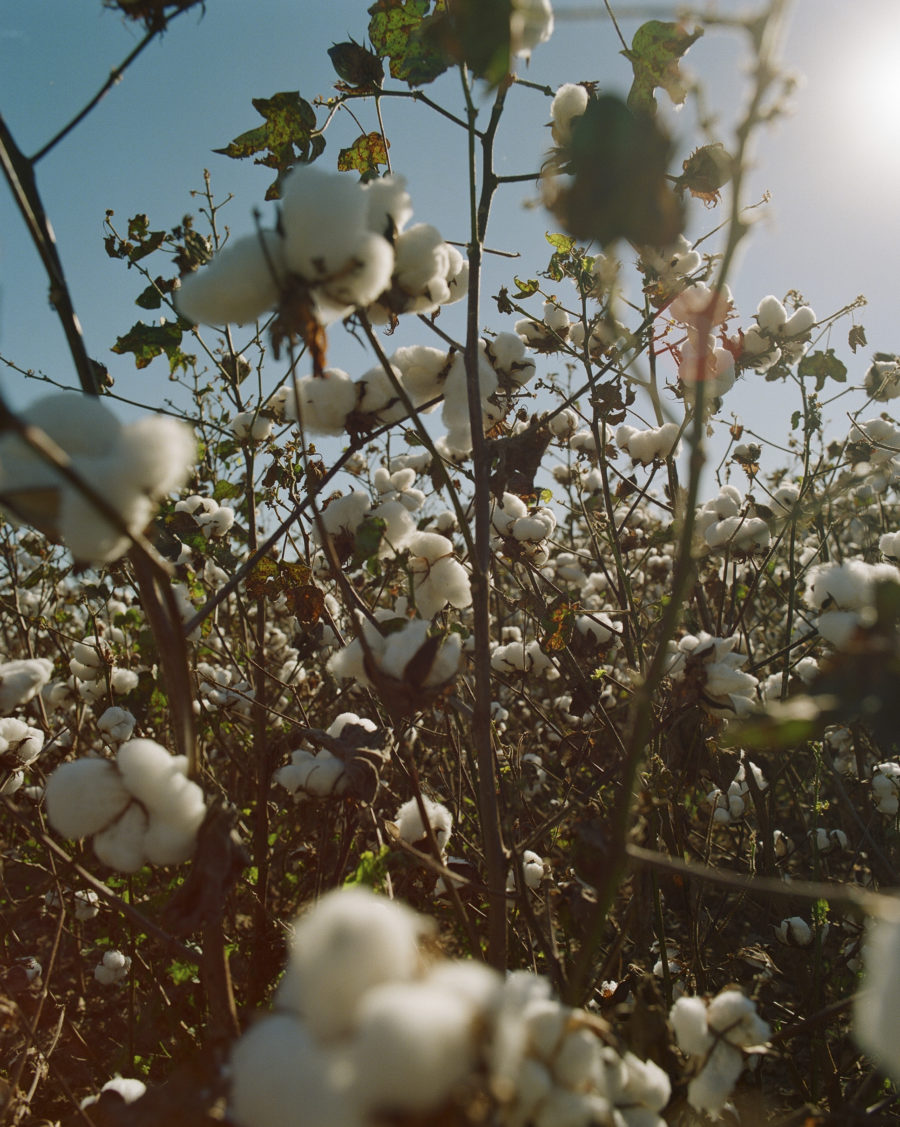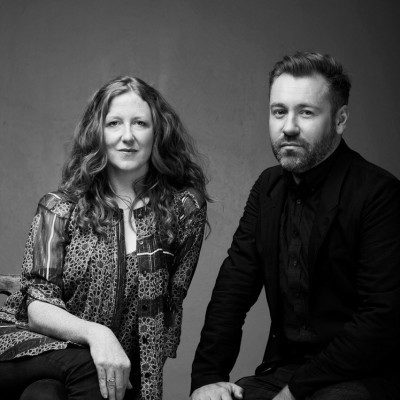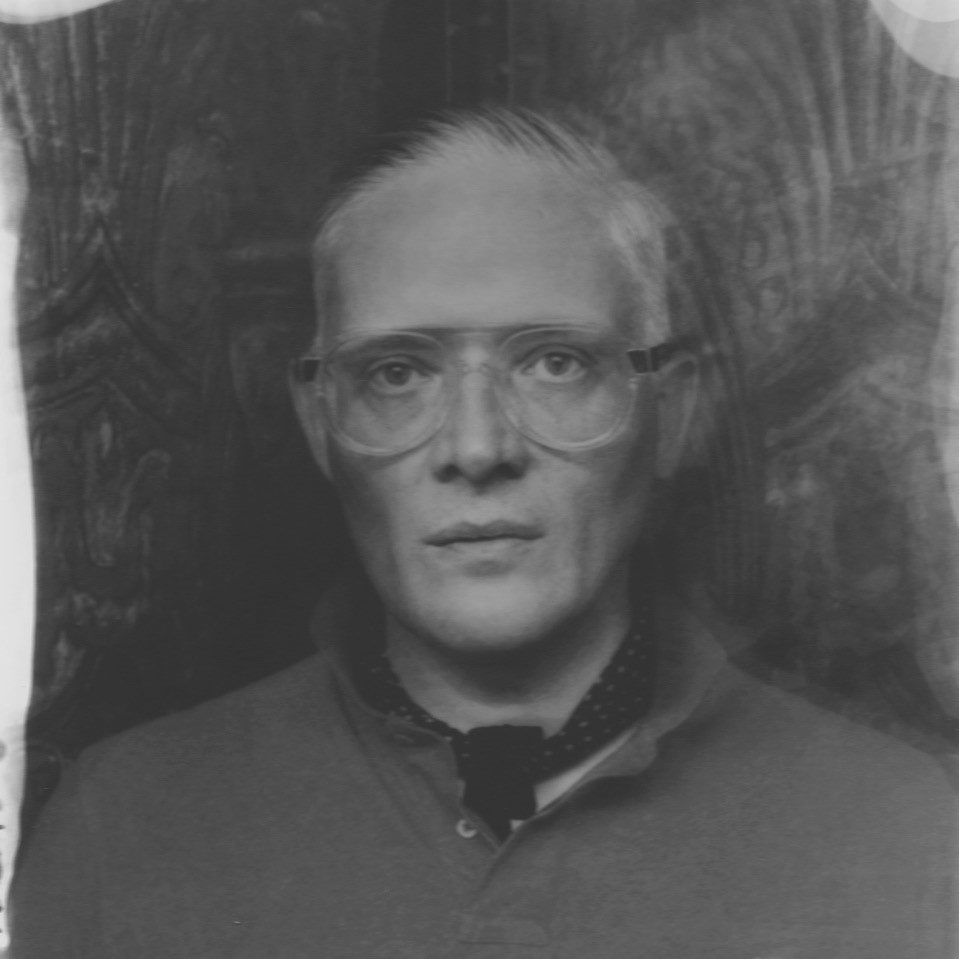April | Feature
Talking About Regeneration
Citizens of Humanity has spent two-and-a-half years transforming the way its farmers grow cotton for its jeans. Could this be the future of denim we need?
Emma SellsWhen Amy Williams sat down in 2021 to watch the cult climate documentary, Kiss the Ground, it proved to be a revelatory moment. As the CEO of Citizens of Humanity, the Los Angeles-based group that encompasses the eponymous premium denim brand alongside another, Agolde, Williams had been on the lookout for the next big way to make the brands and the cotton they relied on even more sustainable.
A product and design expert at one of the company’s partner mills had told her the documentary might hold just the answer she was looking for: regenerative agriculture. And she was right. Two-and-a-half years and a massive amount of hard work later, the group has helped its farms and mills switch over to new ways of working, the cotton has Integrity Grown-certification from Advancing Eco Agriculture and it is being used across the majority of pieces in its collections.


Regenerative agriculture is a caretaking farming practice that puts working with nature first. The idea is to improve the health, fertility and resilience of soil and local biodiversity, which not only increases the yields of the crops you plant, but also encourages the land to sequester carbon and ensures it can be farmed for many generations to come. It’s arguably the logical next step on the road to a more environmentally friendly fashion system – particularly for a denim brand, given that growing cotton conventionally uses vast amounts of pesticides and water.


“It was so straightforward: here is a solution that will help not only environmental challenges, but health, nutritional value of food, farming communities, education, food stability. It just seems so hopeful and actionable.”
Amy Williams, CEO of Citizens of Humanity
Adopting regenerative agriculture can transform the livelihoods of farmers, but it’s also a leap of faith that comes with significant financial outlays. Citizens of Humanity has been careful to support its farms in the US and Turkey, large and small, with access to expert advice as well as significant investment. “I think there’s a high degree of respect for the partners we have, everyone from our wholesale accounts to our mill partners,” says Williams. “And when we’re in something, we’re all in it.”
While you may know it best for its fashion-forward silhouettes and A-list following, thoughtful production is nothing new at COH. Ever since it was founded 21 years ago, its team has been careful to under- rather than over-produce, cutting to order to minimise waste. It also owns its own laundries and a factory in LA, ensuring safe working conditions for its makers and making it quicker and easier to trial and adopt new sustainable practices, from water-recycling programmes to using laser equipment. More recently, COH had been working with cotton that’s organic and GOTS-certified (Global Organic Textile Standard). For the most part, though, it had been taking these steps quietly and behind the scenes. “We’re very introvert,” says Williams. “We’re a group that tends to do things our way and admire a lot of people and learn from them, but we’re not always as outwardly facing as we’ve been in the last year.”


R: Amy Williams, CEO, Citizens of Humanity
Shouting about its hard-won achievements is starting to yield results beyond its own business. The journey to this point has not been without its challenges, farming being an inherently unpredictable and weather-dependent affair. But on the whole, Williams says, it’s been incredibly rewarding and there are more plans in the pipeline to use the same principles across different COH processes and categories. She’s particularly excited by the amount of desire and potential for collaboration she’s finding from farmers, mills, brands and retailers, all reaching out and wanting to follow suit.
“There’s such an opportunity in the industry; we each have a role we can play,” says Williams. “Sometimes it can feel heavy and like you don’t know what’s going to make a difference. But if you’re a buyer for a department store, you can ask your brands where and how they’re sourcing cotton; if you’re a brand you have choice and one of them is far better; if you’re a mill buying cotton, you can ask for this. I think, back to the film, what was so wonderful was that it was so straightforward: here is a solution that will help not only environmental challenges, but health, nutritional value of food, farming communities, education, food stability. It just seems so hopeful and actionable.”




